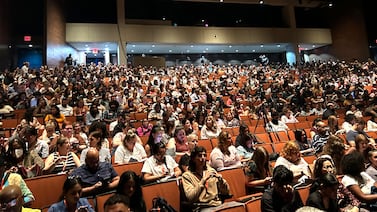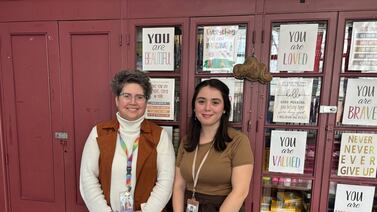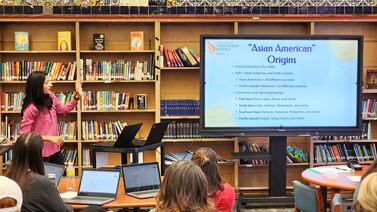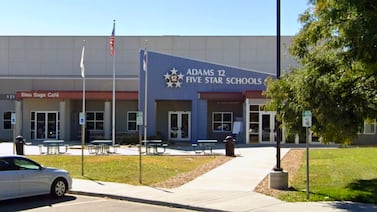Teacher training
The Trump administration is withholding nearly $7 billion for education that has been approved by Congress and was supposed to go out starting July 1.
Six teacher prep programs in Colorado earned an A or A+.
The Education Department expects to hire between 7,000 and 9,000 new educators.
Advocates for English learners have raised concerns for years about new reading instruction policies. A new report claims teachers across the U.S. are facing challenges.
As schools in Michigan and across the country try to find solutions to teacher shortages, ‘grow your own’ pipeline programs are popping up.
Surveys show many teachers haven’t been trained by school districts on how to use AI. That presents a potent risk to sensitive personal data.
Surveys indicate many teachers haven’t been trained on how to use AI tools, even as some grow more comfortable with using them.
In the hands of my students, a tiny gray pebble becomes ‘noticing what others may not see.’ An arch-shaped Lego becomes ‘creating communities where people feel connected.’
Hundreds of educators have already gotten the stipend.
As more states require schools to teach Asian American history, an Illinois program is helping teachers bolster their own knowledge and integrate lessons into curriculum they already use.
DPS hired 64 new international teachers this year, and its goal is to double that number next year.
Hundreds of metro Detroit educators learned earlier this month they’ll receive scholarships to visit the Ron Clark Academy in Atlanta.
Shortly after going live, a new program to pay student teachers received thousands of applications. The state only allocated enough funding for some 700 people.
The district pilot is being considered to start at Thornton Elementary School and Thornton Middle School next fall.
School districts across the state have grappled with a shortage of teachers.
Dozens of states are moving to adopt the science of reading. A new report says many policies leave gaps in the quality of teacher training programs and curriculum choices.
Many applicants are being rejected because they’re confused about which debt forgiveness program to apply for.
Some advocates call for a larger overhaul of the system for determining who is eligible for special education.
By next June, the state’s top education leaders are expected to develop a plan to infuse “science of reading” principles into teacher preparation programs.
Gateway U’s Teacher Pathway Program helps local school staff take steps to become eligible for full-time teaching positions.



















